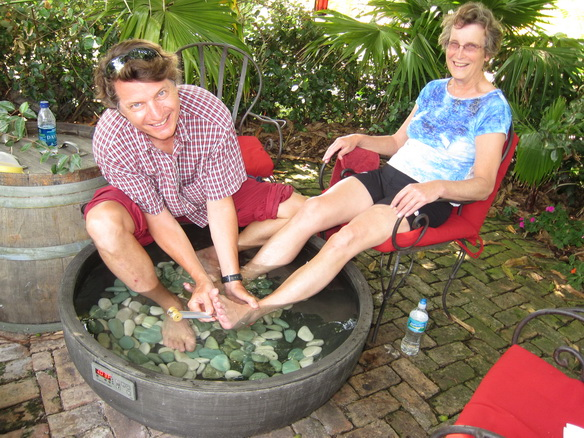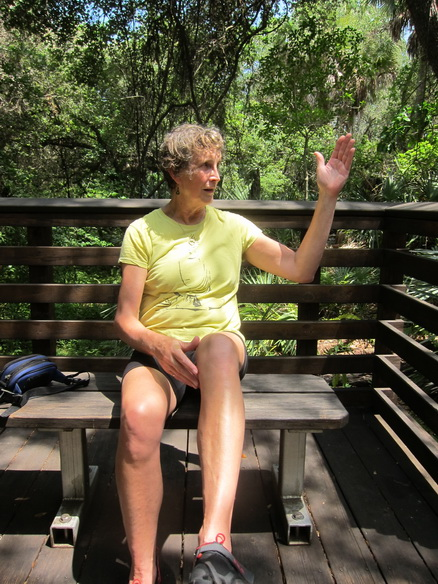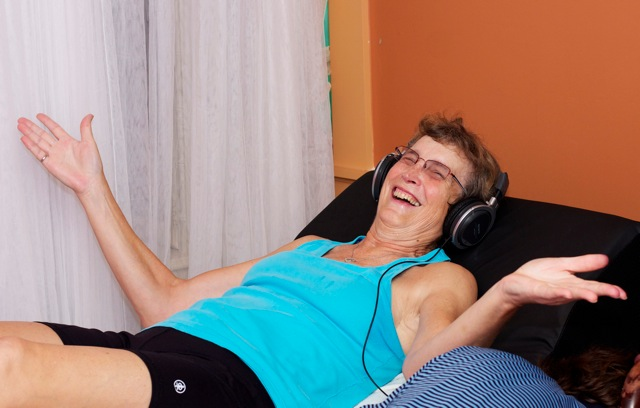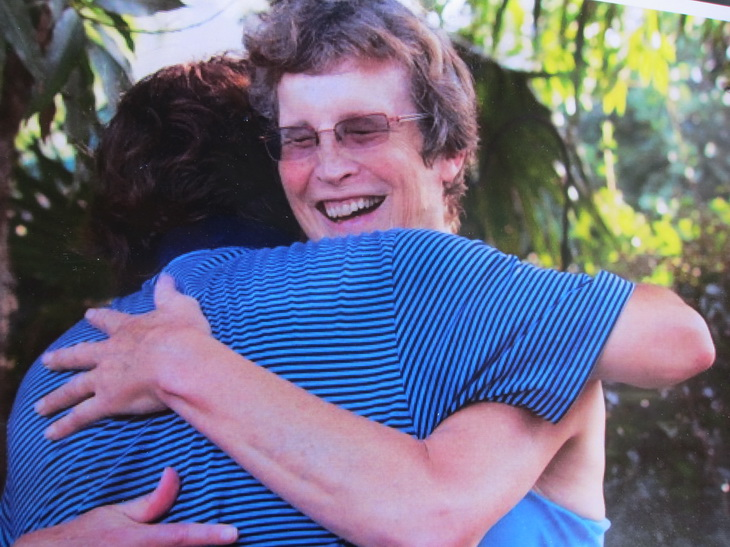Angela gave me permission to post her story and pictures below on recent therapies she has found have offered relief from the symptoms of Parkinsons she currently experiences offered by foot whisperer Randy Eady.
Robert Rodgers, Ph.D.
Founder 2004
Parkinsons Recovery
Road to Recovery from Parkinsons Disease
I met the author, Randy Eady, in Delray Beach, Florida, where he is known as the “Foot Whisperer” for his promotion of whole body health through treatment of the feet. I was intrigued as he had apparently had the same insight as Janice Walton-Hadlock in that PD is related to a blockage of Chi energy in the foot. I saw Randy for several sessions over the period of a month. He calls his work Ancient Walking to Primal Rhythms, a form of “movement meditation.” Each session began with a soak of my feet in a mini hot tub, followed by a foot massage concentrating on acupressure points particularly K1 (kidney 1). He had me try a number of different modalities:

Walking on a pebble mat (also called a Chi mat). At first this hurt a lot like walking on stones but I have become used to it. Randy gave me a pebble mat to take home with me and I use it faithfully every day.
Wearing shoes with individual toe sleeves. Randy got me a pair of Fila “skelatoes” shoes that are the next best thing to going barefoot. Shoes of this type are all the rage right now in the world of running. I find them exceptionally comfortable and superior to any walking shoe that I have ever owned.
Non-focused eye movement. He gave me a number of exercises to do that help train the sides of the brain to do tasks that formerly the other side had done (at least this is my interpretation of the exercises). -Tai chi. Randy instructed me in the first half dozen movements of tai chi, both sitting and standing. I am afraid I am a slow learner (could never learn to dance either) but feel that tai chi is one of the keys to solving the PD problem which I am coming more and more to believe is an electrical problem that can be corrected.
Counterrotating arms. At least this is something I can do quite easily: rotate one arm clockwise and the other arm counterclockwise. Again, I feel that this is about training the brain and creating new neural pathways.
– Vibroacoustic lounge and vest. Randy obtained both of these on loan and I was able to try both. I had previously used a vibroacoustic lounge at Robert Rodgers “Jump Start to Wellness” workshop in December 2009. In my opinion, the vibroacoustic vest was just as effective. The deep vibrations produced by the vest or lounge seem to entrain the tremors of PD, offering considerable relief. The sessions I had were highly relaxing; indeed, I fell asleep.
It is interesting how a tuning fork held against acupressure points, particularly the one on the top of the head, feels so very good.
Walking in nature. Randy introduced me to Delray Oaks, an incredible nature preserve that was less than half a mile from our condo. Walking through that park was one of the most joyous experiences I have ever had and I was literally overflowing with gratitude.
And so much more. Foot whisperer Randy Eady is a true Renaissance man for the 21st-century who has something significant to offer to people with movement disorders such as PD.
Blessings from the blessed,
Angela








